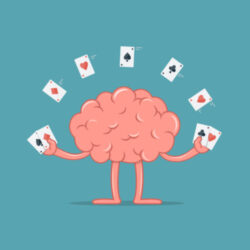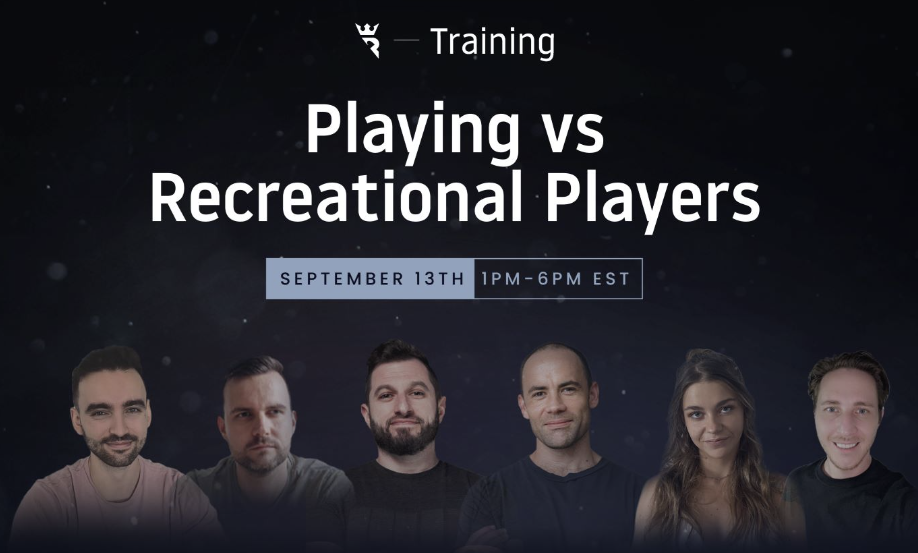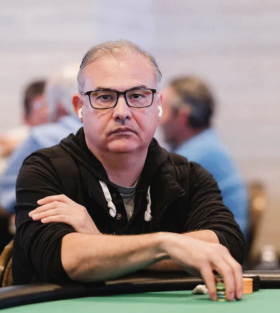Imagine you’re at a private poker club in NYC. A fellow player, sporting a slick Rangers jersey in the middle of playoff season, faces a decision—should he stay at the game and play, or buy playoff tickets at MSG? He’s on his phone looking at ticket prices as he buys into the game for 100 big blinds (BB) and plays while watching the game on his phone so he can listen to the game commentary.
After the first quarter of the game, he decides to head home to catch the rest of the game from his couch with his wallet 60BB lighter from a few lost hands.
He mentioned he’s a recreational player, and I admired his awareness; he knew he wasn’t mentally in the game anymore. Smart move, really.
This is why I love cash games when I’m not in “tournament mode” — they offer the freedom to walk away whenever you want. This freedom is not just about managing your bankroll; it’s about maintaining a balanced poker life.

Recognizing the Right Time to Fold and Go
Physical Signs: Sometimes, your body tells you it’s time to leave before your brain catches up. Maybe it’s a headache from focusing too hard or a backache from too many hours in the chair. These physical signs can mess with your ability to play your best. Feeling stiff? Stand up, stretch, take a lap around the room. If that doesn’t work, it’s probably time to leave the game and get some sleep.
Mental and Emotional Signs: Your mental and emotional state are huge here. Feeling frustrated or finding that the game’s joy is slipping? These are signs it might be time to step back. If you’re on tilt, playing passively, or making more mistakes—like losing track of your stack—it’s a signal that you might be bored or distracted.
Performance Decline: Noticing that you’re not as aggressive as usual and slipping into passive, calling station mode, it might just be mental exhaustion kicking in.

Balancing Poker and Personal Life
Personal Priorities: Poker should fit into your life, not consume it. Got other things on your mind, like a big game you want to watch? Maybe it’s better to call it a night. Sure, there are TV’s all over the place, but those are there for a reason so try to have the discipline to focus on the players and poker game. Also make you have a solid A-GAME pre-game routine can help you gauge if you’re really up for a session.
If your thoughts wander, perhaps save the game for another day. I know I have a hard time transitioning from work mode to poker mode, and I’ve made the choice not to play because it’s not a priority after my pre-game routine.
Mental Health: It’s crucial to set boundaries on your poker time to preserve your mental well-being. Remember, poker is supposed to be fun!
Strategy Tips for Cash Game Players
Set a Stop-Loss Limit: Always decide in advance how much you’re prepared to lose. Not feeling your A-game? It’s okay to walk away. There’s always another day, another game.
Set a Time Limit: A time limit can prevent exhaustion and snap decisions. Even if you’re having a blast, keep your strategy in mind and don’t let excitement cloud your judgment. Set your watch for a silent alarm every hour and do a mental check on yourself.
Goal Setting: Having clear goals for each session can guide your decisions. If you hit your target, maybe it’s a good time to step back, especially if the game turns sour or you start feeling tilty.
Wrapping Up (for now)
Knowing when to step away from a cash game is key to keeping your finances and sanity intact. It’s important to be tuned into the signs telling you it’s time to fold and go.
How do you decide when it’s time to leave the table? Visit our feedback form, share your strategies or stories, and let’s discuss ways to maintain a balanced poker life.



